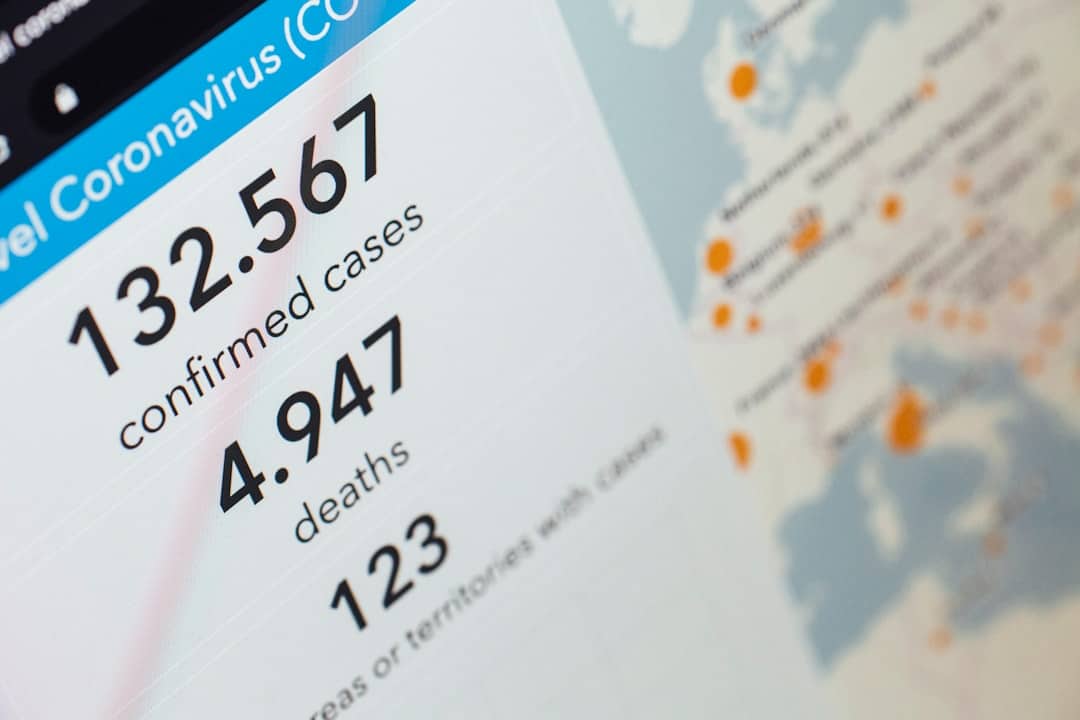In an increasingly interconnected world, the regulation of data has become a paramount concern for governments, organizations, and individuals alike. International data laws are designed to protect personal information and ensure that data is handled responsibly across borders. These laws vary significantly from one jurisdiction to another, reflecting different cultural attitudes toward privacy, security, and individual rights.
For instance, the European Union’s General Data Protection Regulation (GDPR) sets a high standard for data protection, emphasizing the rights of individuals and imposing strict penalties for non-compliance. In contrast, the United States has a more fragmented approach, with sector-specific regulations such as the Health Insurance Portability and Accountability Act (HIPAA) and the California Consumer Privacy Act (CCPA). The complexity of international data laws is further compounded by the rapid pace of technological advancement.
As organizations increasingly rely on digital platforms to collect, store, and process data, they must navigate a labyrinth of legal requirements that can differ not only by country but also by industry. This dynamic landscape necessitates a robust understanding of both local and international regulations to ensure compliance and mitigate risks associated with data breaches and privacy violations. The stakes are high; failure to comply can result in significant financial penalties, reputational damage, and loss of consumer trust.
Thus, organizations must prioritize compliance as a critical component of their operational strategy.
Key Takeaways
- International data laws are complex and constantly evolving, creating challenges for businesses operating across borders.
- Compliance with international data laws requires significant resources and expertise to navigate the various regulations and requirements.
- AI can play a crucial role in streamlining compliance processes by automating data analysis, monitoring, and reporting.
- Using AI for compliance can lead to improved efficiency, accuracy, and cost savings for businesses.
- Case studies demonstrate how AI has successfully streamlined compliance with international data laws for organizations, paving the way for future trends in AI-driven compliance.
Challenges of Compliance with International Data Laws
Navigating the complexities of international data laws presents numerous challenges for organizations. One of the most significant hurdles is the lack of uniformity among regulations. Different countries have varying definitions of personal data, consent requirements, and enforcement mechanisms.
For example, while GDPR mandates explicit consent for data processing, other jurisdictions may allow for implied consent under certain conditions. This inconsistency can lead to confusion and misinterpretation, particularly for multinational corporations that operate in multiple regions. As a result, organizations often find themselves grappling with the question of how to harmonize their data practices across diverse legal frameworks.
Another challenge lies in the evolving nature of data laws themselves. Regulatory bodies are continually updating and revising legislation to address emerging technologies and changing societal expectations regarding privacy. For instance, the rise of artificial intelligence and machine learning has prompted regulators to consider new guidelines that govern automated decision-making processes.
Organizations must stay abreast of these developments to ensure that their compliance strategies remain relevant and effective. This requires not only a deep understanding of current laws but also the ability to anticipate future regulatory trends—a task that can be daunting given the rapid pace of change in the digital landscape.
Role of AI in Streamlining Compliance

Artificial intelligence (AI) has emerged as a powerful tool for organizations seeking to streamline compliance with international data laws. By leveraging advanced algorithms and machine learning capabilities, AI can automate many aspects of compliance management, reducing the burden on human resources and minimizing the risk of human error. For instance, AI-driven systems can analyze vast amounts of data to identify potential compliance risks, flagging anomalies or patterns that may indicate a violation of regulations.
This proactive approach allows organizations to address issues before they escalate into significant problems. Moreover, AI can facilitate real-time monitoring of data processing activities, ensuring that organizations remain compliant with evolving legal requirements. By continuously analyzing data flows and user interactions, AI systems can provide insights into how personal information is being used and whether it aligns with established policies.
This level of oversight is particularly valuable in industries such as finance and healthcare, where regulatory scrutiny is intense and non-compliance can have severe consequences. As organizations increasingly adopt AI technologies, they are finding that these tools not only enhance compliance efforts but also contribute to overall operational efficiency.
Benefits of Using AI for Compliance
The integration of AI into compliance processes offers numerous benefits that extend beyond mere efficiency gains. One significant advantage is the ability to conduct comprehensive risk assessments with greater accuracy and speed than traditional methods allow. AI algorithms can analyze historical data and identify trends that may indicate potential compliance issues, enabling organizations to take preemptive action.
This predictive capability is particularly valuable in industries where regulatory requirements are constantly changing, as it allows organizations to adapt their practices proactively rather than reactively. Additionally, AI can enhance transparency in compliance efforts by providing detailed audit trails and documentation of data processing activities. This level of transparency is crucial for demonstrating compliance to regulatory authorities and building trust with consumers.
For example, AI systems can automatically generate reports that outline how personal data is collected, processed, and stored, making it easier for organizations to provide evidence of compliance during audits or investigations. Furthermore, by reducing the manual workload associated with compliance tasks, AI frees up human resources to focus on more strategic initiatives, ultimately driving innovation within the organization.
Case Studies of AI Streamlining Compliance with International Data Laws
Several organizations have successfully implemented AI-driven solutions to enhance their compliance with international data laws, showcasing the transformative potential of these technologies. One notable example is a multinational financial institution that faced challenges in managing its compliance obligations across various jurisdictions. By deploying an AI-powered compliance platform, the organization was able to automate its risk assessment processes and monitor transactions in real-time for potential violations of anti-money laundering (AML) regulations.
The system utilized machine learning algorithms to analyze transaction patterns and flag suspicious activities for further investigation. As a result, the institution significantly reduced its compliance costs while improving its ability to detect and respond to potential risks.
The organization implemented an AI-driven data governance solution that enabled it to classify and manage patient data according to both sets of regulations. The system utilized natural language processing (NLP) techniques to analyze unstructured data sources, such as clinical notes and patient communications, ensuring that sensitive information was handled appropriately. By automating these processes, the healthcare provider not only streamlined its compliance efforts but also enhanced patient privacy protections.
Future Trends in AI and Compliance with International Data Laws

As technology continues to evolve, so too will the role of AI in compliance with international data laws. One emerging trend is the increasing use of AI for predictive analytics in compliance management. Organizations are beginning to harness the power of machine learning algorithms to forecast potential compliance risks based on historical data patterns and external factors such as regulatory changes or market dynamics.
This proactive approach enables organizations to allocate resources more effectively and implement targeted compliance strategies that address specific vulnerabilities. Another trend is the integration of AI with blockchain technology to enhance data security and transparency in compliance efforts. Blockchain’s decentralized nature provides an immutable record of transactions, making it an ideal complement to AI-driven compliance solutions.
By combining these technologies, organizations can create robust systems that not only automate compliance processes but also provide verifiable proof of adherence to international data laws. This synergy could revolutionize how organizations approach compliance, offering greater assurance to regulators and consumers alike.
Ethical Considerations in AI-Driven Compliance
While the benefits of using AI for compliance are substantial, ethical considerations must also be taken into account. One primary concern is the potential for bias in AI algorithms, which can lead to discriminatory practices in compliance monitoring or decision-making processes. If not carefully managed, biased algorithms could disproportionately impact certain groups or individuals, raising questions about fairness and equity in compliance practices.
Organizations must prioritize fairness in their AI systems by implementing rigorous testing protocols and ensuring diverse datasets are used during training. Additionally, there are concerns regarding transparency in AI-driven compliance processes. Organizations must be able to explain how their AI systems make decisions related to compliance—especially when those decisions affect individuals’ rights or access to services.
This need for explainability poses challenges for many AI models, particularly those based on complex neural networks that operate as “black boxes.” To address these ethical considerations, organizations should adopt best practices for transparency and accountability in their AI systems while fostering a culture of ethical responsibility throughout their compliance efforts.
The Future of AI in International Data Law Compliance
The future of AI in international data law compliance appears promising as organizations increasingly recognize the value of leveraging advanced technologies to navigate complex regulatory landscapes. As AI continues to evolve, its applications in compliance will likely expand further, offering innovative solutions that enhance efficiency, accuracy, and transparency in managing data-related obligations. However, it is essential for organizations to remain vigilant about ethical considerations and ensure that their use of AI aligns with principles of fairness and accountability.
As regulatory frameworks continue to adapt to technological advancements, organizations must be prepared to embrace change and leverage AI as a strategic asset in their compliance efforts. By doing so, they can not only mitigate risks associated with non-compliance but also foster trust among consumers and stakeholders in an era where data privacy is paramount. The intersection of AI and international data laws represents a critical frontier for organizations seeking to thrive in a digital economy while upholding their commitment to responsible data stewardship.
One related article that complements the discussion on how AI is streamlining compliance with international data laws is “Unlock the Power of the Galaxy with the Samsung Galaxy S21” from enicomp.com. This article explores the advanced features and capabilities of the Samsung Galaxy S21, highlighting how technology continues to evolve and shape our daily lives. Just as AI is revolutionizing data compliance processes, the Samsung Galaxy S21 showcases the cutting-edge innovations that are driving the digital landscape forward.
FAQs
What is AI compliance with international data laws?
AI compliance with international data laws refers to the use of artificial intelligence technology to ensure that businesses and organizations are adhering to the various data protection and privacy laws that exist across different countries and regions.
How does AI streamline compliance with international data laws?
AI streamlines compliance with international data laws by automating the process of monitoring, analyzing, and managing data to ensure that it meets the requirements of different regulations such as GDPR, CCPA, and others. This helps organizations to efficiently and accurately comply with the complex and evolving landscape of international data laws.
What are the benefits of using AI for compliance with international data laws?
The benefits of using AI for compliance with international data laws include improved accuracy and efficiency in data management, reduced risk of non-compliance, cost savings through automation, and the ability to adapt to changes in regulations more quickly.
What are some examples of AI technologies used for compliance with international data laws?
Some examples of AI technologies used for compliance with international data laws include machine learning algorithms for data analysis, natural language processing for interpreting legal documents, and robotic process automation for automating compliance tasks.
How does AI help businesses and organizations stay compliant with international data laws?
AI helps businesses and organizations stay compliant with international data laws by providing real-time monitoring and analysis of data, identifying potential compliance issues, automating routine compliance tasks, and facilitating the implementation of necessary changes to ensure compliance.

